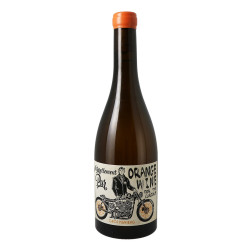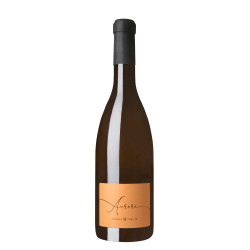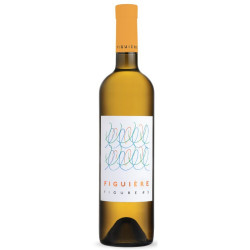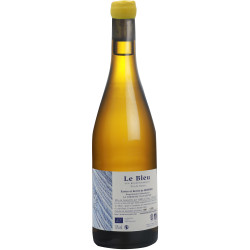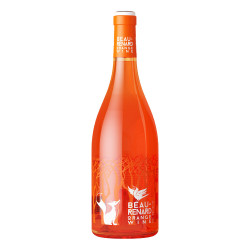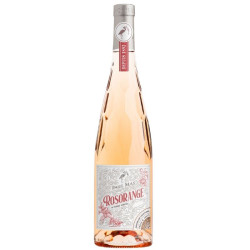Free delivery on purchases of €150 or more per winegrower in France and €250 in Europe (excluding United Kingdom)
Free delivery on purchases of €150 or more per winegrower in France and €250 in Europe (excluding United Kingdom)
-
- Great Offer
-
Our wines
-
-
By colors
-
All the wines
-
-
-
All Regions
-
-
-
-
Our organic & natural wines
-
-
Our Champagnes & Spirits
-
-
All Champagnes
-
-
Spirits
-
All the spirits
-
-
-
Our winemakers
-
-
-
winemakers
-
-
-
Our advice
-
-
Find your wine
-
-
-
- Our commitment !
-
- Great Offer
-
Our wines
-
-
By colors
-
All the wines
-
-
-
All Regions
-
-
-
-
Our organic & natural wines
-
-
Our Champagnes & Spirits
-
-
All Champagnes
-
-
Spirits
-
All the spirits
-
-
-
Our winemakers
-
-
-
winemakers
-
-
-
Our advice
-
-
Find your wine
-
-
-
- Our commitment !
Unbeatable !
WHAT IS ORANGE WINE?

What Exactly is Orange Wine? Why Does It Have This Color and Where Does It Come From?
Orange wine is a trendy wine, but what is it exactly? Let’s explore the basics of orange wine.
Orange Wine: A Trendy Choice
Here are a few key points to get acquainted with orange wine.
1) What is Orange Wine?
Despite its color, orange wine is not made from oranges. Instead, it is made from white grapes that are vinified using the same method as red wines. The process involves macerating the grapes while keeping their solid parts—skins, seeds, and sometimes even stems—intact. This method is what gives the wine its distinctive orange hue.
2) What are Its Characteristics?
Like red wines, orange wines have a strong character. Their aromas vary depending on the length of the maceration period and can include dried fruits, lemon, mandarin, roasted nuts, and sometimes even mushrooms! On the palate, orange wines offer tannins and a robust structure similar to red wines, along with a minerality akin to somedry white wines. This makes orange wines a unique blend of red and white wine qualities, distinguished by their freshness and a rich, diverse aromatic palette that pairs well with a wide range of foods.
3) Where Does It Come From?
Though considered trendy or even "hipster" in recent years, orange wine is not a new phenomenon. Its origins date back to around 4000 B.C. in Georgia. Slovenian and Italian winemakers revived this ancient method in the 1990s, bringing this "forgotten wine" back into modern glasses. Orange wine is gradually gaining popularity, including in French wine regions such as Jura, Languedoc, Loire, and Savoie. It is also popular in Southern European countries, South Africa, Australia, and the United States.
A Unique Winemaking Method for a Singular Color
The secret behind orange wine lies in the extraction of color from the skins of white grapes. These skins are rich in pigments and phenolic compounds, which contribute to the wine's tannic structure and aromatic complexity. By extending contact with the grape solids during fermentation, winemakers create wines that are authentic, intense, and deeply expressive of their terroir.
Among the most iconic orange wine producers, many are committed to biodynamic practices. The range of natural wines continues to expand each year, attracting more curious drinkers and seasoned enthusiasts in search of original, healthy, and unconventional wines.
How to Taste Orange Wine
The profile of orange wine is truly unique. Neither fully white nor truly red, it is best enjoyed at around 12 to 14°C, served in a white or universal wine glass. Orange wines have notable structure, and their tannic framework sometimes benefits from a bit of aeration to fully reveal their richness.
When it comes to food pairings, orange wines are an excellent match for Asian cuisine, such as curries, miso-based dishes, and spiced plates. Combining the structure of red wine with the freshness of white wine, they are perfect partners for enhancing the complexity of exotic flavors. They also pair well with hard cheeses, roasted vegetables, or mushroom-based dishes.
DID YOU KNOW?
For the past two years, a festival dedicated solely to orange wine has emerged: the Orange Wine Festival. Over two weeks, organizers invite you to discover this unique wine through tastings, dinners, and other events. The first editions took place in Izola (Slovenia) and Vienna (Austria).
Orange wine stands out thanks to its ancient roots, its distinctive color that breaks conventions, its unconventional winemaking method, and its impressive versatility at the table. Still relatively rare on restaurant wine lists, it deserves to be discovered—whether by white wine lovers or red wine enthusiasts. Whether you're looking to surprise your guests or simply explore a different side of white grapes, orange wine is a fascinating choice that’s sure to spark curiosity. Explore our selection of orange wines and enjoy our latest bottles sourced directly from outstanding French producers.
Our nuggets
Related articles

WHAT IS THE DIFFERENCE BETWEEN A SWEET WINE AND A SYRUPY WINE?
As an aperitif, with a blue cheese or a chocolate dessert, there's always a ...
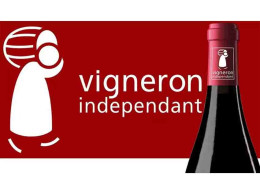
WHAT IS AN INDEPENDENT WINEGROWER?
We often hear the term "independent winegrower" used and we can see the "Vig...

WINEGROWER AND WINEGROWER: DO YOU KNOW THE DIFFERENCE?
When we taste a wine, we sometimes refer to the 'maker' of the wine as a vig...
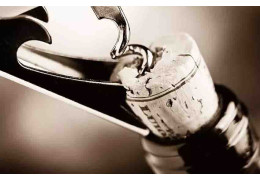
3 TIPS TO SAVE YOUR CORK
Thanks to our article explaining how to open a bottle of wine like a real pr...
